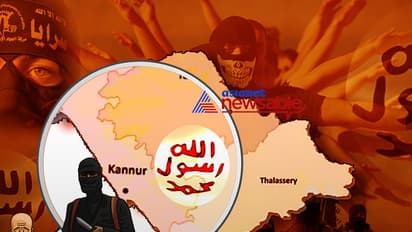Why India could soon be under a ‘Made in Kerala’ threat

Synopsis
There is a “I told you so” reaction from those in India's security establishment to the arrest of five members of an ISIS module in Kannur district of Kerala on Wednesday and Thursday. The profile of those arrested, security experts say, is proof that the Malabar region of Kerala is the most-preferred campus for recruitment for the ISIS in India.
Among those arrested is Hamsa, said to be a key handler and indoctrinator. The 52-year-old is also known locally as Taliban Hamsa. According to the Kannur police, Hamsa has deep contacts in the Gulf and worked at the Al Ansar in Bahrain, suspected to be a training centre for ISIS sympathisers. The Al Ansar route, the police feel, is used by Keralites who join the ISIS.
The arrest come at the end of nearly three months of surveillance. Three of these five men - all between 23 and 26 years of age - had left India for Dubai earlier this year and returned in July after they were deported by Turkish authorities when they tried to cross into Syria. The Kerala police had put the youth under the radar since their return. The arrests were made after the cops found concrete evidence of their links with the global terror group.
“In most chatrooms, we find the youth going the whole hog despite knowing that many of the police intelligence groups eavesdrop on the chats or even infiltrate using fake identity. Many of these pro-ISIS chats are also anti-India,”' says a senior officer who was closely involved with investigating the ISIS footprint in south India.
Manaf Rahman who was arrested along with Hamsa, would have been in Syria by now but for having been turned back at Mangaluru airport after immigration authorities got suspicious. He too was indoctrinated by Hamsa.
What the arrest of the five men establishes is that the process of radicalisation is so deep that security agencies are not able to bring them back, using the fear of the law. The fact that many others from the same Kannur district have been deported from Turkey does not deter them. Even the fact that five Kannur youth have been reportedly killed in Syria and Afghanistan makes no difference. In September 2016, after the revelation that 21 youth from Kerala had joined the ISIS, there have been reports that many of them have been killed.
India has lost these youth to the devil.
What makes Kerala, especially its Malabar region a catchment centre for the ISIS? Security experts involved in mapping the mind of the Muslim youth say the high literacy rate, IT savvy temperament, the Gulf connection, close contact with the radical elements, a close knit community and unemployment make a potent combination and that has converted Malabar into a ticking timebomb. It is also tough for intelligence sleuths to penetrate as just about every family in Kerala has a member working in the Gulf. Remittance money comes regularly to every household and this money transfer route in some cases, is used to fund illegal activities.
Add to it the Kannur police's obsession with the frequent political clashes between CPM and RSS activists. “The focus of the administration, police and media is constantly on the Left vs RSS political battle that there is no vigil over ISIS-related activities. It is only now with the NIA closely working with the Kerala police that technical intelligence is being used overtime to track jehadi activities,” says an officer.
The latest arrests have also given meat to the NIA's earlier proposal to ban the Popular Front of India. Three of those arrested were members of the PFI till two years ago. The Indian security establishment believes the PFI is a front organisation for many such radical elements. Citing similar reasons, the BJP too has been rooting for a ban on the PFI. In its defence, the PFI says that the moment it realised the ISIS connection of the three Kannur youth, it cancelled their membership two years ago.
But is it likely that this desire to fight the ISIS war in Syria move to a situation where these ‘Made in Kerala’ terror modules turn the gun on India?
“All terror organisations move through various stages of evolution. They have to raise resources, find the right people to radicalise, a mass base has to be built up, especially through student wings. Once that critical mass is achieved, India will be under threat,”' says a former NIA officer.
This assessment that the ISIS wouldn't shy away from turning the ignition key to launch terror operations in India once their numbers increase, is based on the fact that Indian Mujahideen modules have been neutralised and ISIS remains the only outfit that seems to be in recruitment mode.